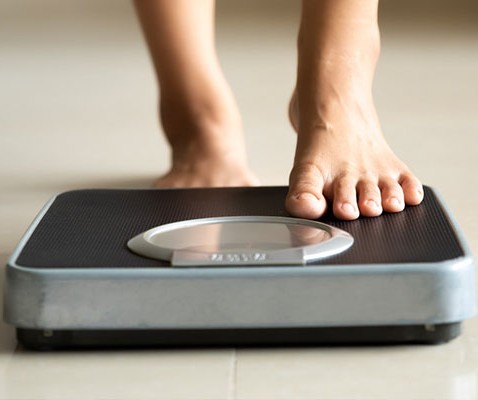How Busy People Lose Weight

Prioritise protein to lose weight with limited time
The first step to getting right for a calorie deficit (the only thing that governs weight loss) is getting your diet right.
And the most important starting point is to prioritise protein intake, for these reasons:
- It's better than carbohydrates or fat for keeping you full
- It's low in calories (4 per gram)
- We burn 30% of calories from protein just digesting it
- It causes dietary satisfaction amongst dieters, and thus keeps weight loss on track
- It helps us repair and grow muscle resulting from any exercise we're doing
In short, protein intake is critical!
So how much?
2.3 - 3.1 grams of protein per kilogram of fat-free mass per day. Ignore the fat-free mass calculations if you'd like, and simply consume 2 grams.
So, that's the first step and the cornerstone to a successful weight loss plan. Consuming higher fats and carbohydrates ahead of protein can be a big problem irrespective of the time you have.
Consistent meal intake for weight loss
This step isn't for everyone but having a consistent breakfast and lunch daily can make things a lot easier. It means you're not caught "out and about" and "hungry" and you simply find yourself ordering high-calorie food "because there were no other options."
Whether it's ready-to-eat meals, or the same high protein-low calorie lunch ready at home, or taken out with you, it's a great step to ensure you're not caught out.
A high-protein and low-calorie breakfast and lunch mean you can save your higher calories meals and snacks for the end of the day when there tends to be more time to prepare and eat!
Don't spend hours exercising, and/or work while walking
If you've got a meeting somewhere that you know will go for at least 40 minutes, suggest to this person you take it to the park for a stroll, or around the block.
These additional calories add up and make a big difference to calories burnt at the end of the day. This is referred to as NEAT: non-exercise activity thermogenesis.
NEAT is the calories burnt daily from activities that aren't directly exercise: walking to the bathroom, maintaining posture, walking to public transport, etc.
Moreover, if you know you have a 40-minute phone call, try taking it away from your desk and on a walk, too. Providing it isn't too loud, it's another way to sneak more calories burnt into the daily equation, that really adds up at the end of the day!
The other tip is to answer emails maybe in the morning whilst taking a walk; stacking two tasks at once in order to save time. You might leave from your work office, or from your home office, just make sure your shoes are comfortable!

Keep your training sessions shorter
There's a misconception that we need to spend hours in the gym to get the body we want. But it's not true.
45-60 minutes is all you need for a good resistance training workout, 4-5 times a week.
Most people have that time.
The key is to see a daily visit to the gym as the cornerstone to your day, and a way to "win" the day.
When you see the gym as like brushing your teeth (doing it no matter how much "time" you have or how late it is), you'll quickly notice a difference in your physique!
You can even have time carved out for your workouts: you hit the gym at 8 am, 3 pm, or after work (6 pm) no matter what.
If you have a selected time to train, you don't have an excuse!
It's the same as our food example, if you've got a lower calorie option ready to go for lunch for the rest week, you won't need an excuse!
Choosing the right type of exercise
Whatever you chose, make sure it's time-efficient.
For example, two hours of cardio is a long time. If you love doing cardio, then do it.
But if you're doing it purely to lose weight, then this is the point we reveal that a calorie deficit induced from dieting alone is just as effective for weight loss as exercising-induced deficits.
In other words, you can create your weight loss calorie deficit from dieting alone, skip the cardio, and lift weights for an ideal shape irrespective of your gender.
Doing weights AND cardio takes a long time. If you're really time-poor, then weight training only is advised, as it will help you build muscle mass and get you into great shape.

The bottom line is that busy people can successfully lose weight despite having limited time. By prioritising protein intake to the tune of about 2 grams per kilogram of body weight, and ensuring your breakfasts and lunches are pre-planned and relatively consistent, you're going a long way to avoiding overeating early on in the day!
Moreover, not spending hours exercising, or stacking it with work duties at the same time, is a good strategy. Also, ensuring that when you do go and exercise at the gym, it's only for 45-60 minutes and that you prioritise a deficit from diet first before copious amounts of exercise, is critical.
References:
- Carbone JW, Pasiakos SM. Dietary Protein and Muscle Mass: Translating Science to Application and Health Benefit. Nutrients. 2019;11(5):1136. Published 2019 May 22. doi:10.3390/nu11051136
- Helms ER, Zinn C, Rowlands DS, Brown SR. A systematic review of dietary protein during caloric restriction in resistance trained lean athletes: a case for higher intakes. Int J Sport Nutr Exerc Metab. 2014 Apr;24(2):127-38. doi: 10.1123/ijsnem.2013-0054. Epub 2013 Oct 2. PMID: 24092765.
- Krzysztofik M, Wilk M, Wojdała G, Gołaś A. Maximizing Muscle Hypertrophy: A Systematic Review of Advanced Resistance Training Techniques and Methods. Int J Environ Res Public Health. 2019;16(24):4897. Published 2019 Dec 4. doi:10.3390/ijerph16244897
- Osilla EV, Safadi AO, Sharma S. Calories. [Updated 2021 Sep 15]. In: StatPearls [Internet]. Treasure Island (FL): StatPearls Publishing; 2021 Jan-. Available from: https://www.ncbi.nlm.nih.gov/books/NBK499909/
- Paddon-Jones D, Westman E, Mattes RD, Wolfe RR, Astrup A, Westerterp-Plantenga M. Protein, weight management, and satiety. Am J Clin Nutr. 2008 May;87(5):1558S-1561S. doi: 10.1093/ajcn/87.5.1558S. PMID: 18469287.
- Pesta DH, Samuel VT. A high-protein diet for reducing body fat: mechanisms and possible caveats. Nutr Metab (Lond). 2014;11(1):53. Published 2014 Nov 19. doi:10.1186/1743-7075-11-53
- Westerterp-Plantenga MS, Lemmens SG, Westerterp KR. Dietary protein - its role in satiety, energetics, weight loss and health. Br J Nutr. 2012 Aug;108 Suppl 2:S105-12. doi: 10.1017/S0007114512002589. PMID: 23107521.
















































